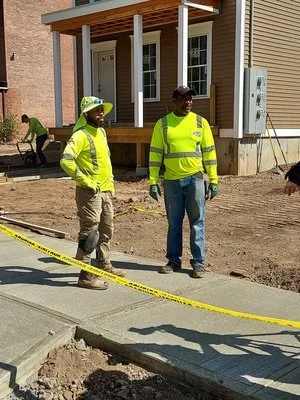Did you know that U.S. holiday sales are expected to reach a record-breaking $989 billion this year in November and December alone? According to a National Retail Foundation consumer study, consumers are expecting to spend an average of $902 each on gifts, food, decorations, and other seasonal items. Given that the holiday season is the busiest time of year for spending, it’s important to consider the impact of where you choose to spend your money.
Read MoreLa Ley de Reducción de la Inflación (IRA) de 2022 asignó casi $9 mil millones para programas de reembolso de energía para hogares de consumidores, diseñado para ayudar a los propietarios de viviendas a reducir el costo inicial de implementar medidas de ahorro de energía. Estas iniciativas tienen como objetivo promover la adopción de tecnologías de eficiencia energética y estrategias de climatización, a lo largo permite a los residentes reducir su consumo de energía y reducir sus facturas de energía.
Read MoreThe Inflation Reduction Act (IRA) of 2022 allocated nearly $9 billion for consumer home energy rebate programs, designed to help homeowners reduce the upfront cost of implementing energy-saving measures. These initiatives aim to promote the adoption of energy efficient technologies and weatherization strategies, ultimately empowering residents to reduce their energy consumption and lower their energy bills.
Read MoreAmid Liberia's recovery from the aftermath of a 14-year civil conflict and the Ebola outbreak, the country confronts significant hurdles in education, peace-building, and socioeconomic development. The Liberia Institute for Girls Project stems from dialogues addressing Liberia's overarching needs, notably the socioeconomic deprivation and marginalization experienced by Liberian women and girls.
Read MoreEarth Forward Group (EFG) was thrilled to attend the Building Performance Association National Home Performance Conference this spring. As a leading provider of energy solutions, participating in events like this allows us to stay at the forefront of industry trends and innovations. Here’s a recap of key conference highlights and valuable lessons we learned.
Read MoreAs part of the City of Hartford’s ambitious Climate Action Plan, the City aims to improve quality of life for its residents through environmental stewardship, advancing the local economy, improving public health outcomes, and promoting social equity. This project was designed to address current gaps in the community by improving resident access to resources that stabilize utility bills, reduce energy burden, make homes more comfortable, address health and safety barriers, and improve home values. By doing so, the project aimed to facilitate the uptake of residential projects related to energy efficiency, weatherization, and building performance.
Read MoreIn recent years, the expanding U.S. green economy has created a significant opportunity for the City of New Haven to enhance its reputation as a leading environmental workforce destination. The city seeks to achieve this by empowering its residents to acquire new skills and knowledge, thereby channeling “green” dollars into local businesses. To ensure a truly sustainable labor pool and a just transition to a green energy economy, we must make certain that workforce programming is accessible, affordable and readily available to our next generation of contractors.
Read MorePeople of color have historically played a pivotal role in spearheading the environmental justice movement since the 1970s. Black-led organizations continue to fight climate change, serve under-resourced communities and build a greener future.
Read MoreLow-income households continue to receive a disproportionately small amount of energy-savings, despite increased spending by most gas and utility companies on energy-efficiency services, as reported by the American Council for an Energy Efficient Economy (ACEEE) in 2022. EFG covered this topic in detail in this 2023 blog article.
Read More







